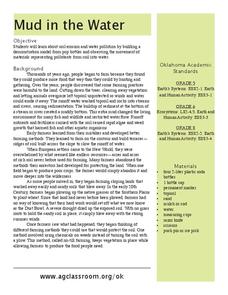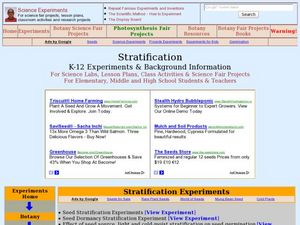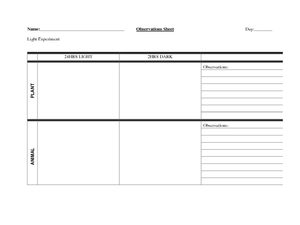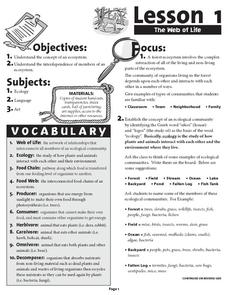Curated OER
Phytoplankton
In this phytoplankton worksheet, learners read and study online information on plankton blooms to answer 8 short answer questions about the topic.
Curated OER
Mud in the Water
Sixth graders investigate erosion. In this erosion lesson, 6th graders explore how farming changes the environment. Students construct an erosion model and research ways to protect the soil from excess mud generated by farming.
Curated OER
Stratification
Students study the process of stratification and seed dormancy. In this germination lesson students prepare a medium in which to grow seeds.
Curated OER
Water Quality Monitoring
Students comprehend the four parameters of water quality. They perform tests for salinity, dissolved oxygen, pH and clarity or turbidity. Students comprehend why scientists and environmental managers monitor water uality and aquatic...
Curated OER
Organisms – Their Needs
Students compare and contrast different organisms characteristics. In this life science lesson plan, students design an experiment about plants and animals needs. They collect data and write their conclusion about the experiment.
Curated OER
The Principles Of Composting
Students put items in a plastic bag and watch the effects of composting. While completing the experiment, students answer questions and ask permission to start their own compost pile at home.
Curated OER
Mud in the Water
Students build a soil erosion model to study the importance of soil conservation. They investigate how land forms from both constructive and destructive forces.
Curated OER
The Web of Life
Middle schoolers participate in a game in which they discover the balance of life in the ocean. They identify different organisms that rely on different types of food. They answer questions to complete the activity.









